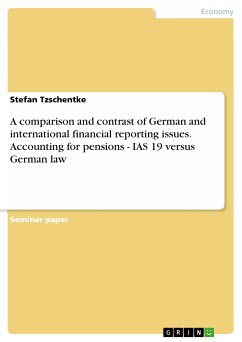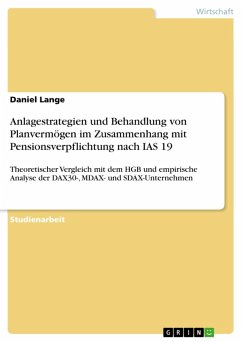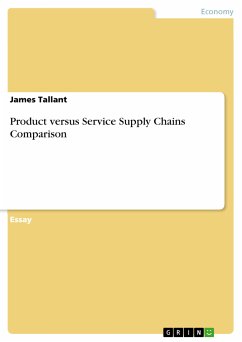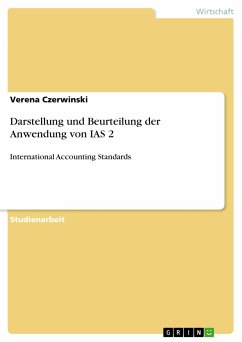Seminar paper from the year 2004 in the subject Business economics - Accounting and Taxes, grade: 1,7, University of Bayreuth, language: English, abstract: Although accounting for company pension schemes is one of the most controversial topics of discussion in the international accounting trade, many investors do not pay it due attention. In future, even more so than now, annual results will be influenced by latent reserves and obligations, resulting from different ways of accounting for pension benefit schemes. German financial statements and those following either IAS or US-GAAP often differ significantly on this point. The International Accounting Standards and the German Commercial Code are based on different principles. Whereas German regulations are dominated by the imperative of the protection of creditors, IAS lay the focus of accounting on a true and fair view of financial statements in order to provide a suitable basis for investment decisions. These divergent priorities are reflected in the accounting for pensions as well. The two main problems in accounting for pensions are the recognition and the appraisal of pension provisions. Eventually both accounting systems face the same problems and each one has a different way of resolving them. On the other hand, HGB and IAS unanimously agree on the fact that company pension schemes that do not require pension provisions, do not represent an accounting problem. The objective of the treatise on hand is the depiction of the difference between IAS and HGB regarding the recognition and accounting for pension as well as the resulting accounting-effects on the balance-sheet. The paper will first try to give an overview of the term 'pensions' as it is used in German law and in the IAS, and then - in the second part of the bases- explain the underlying problematic nature of accounting for pensions. In the third and fourth part the respective regulations, first according to German law and then IAS, will be particularized. The conclusion will provide an extensive comparison between the two systems as well as a critical appraisal of the differences and possible financial effects.
Dieser Download kann aus rechtlichen Gründen nur mit Rechnungsadresse in A, B, BG, CY, CZ, D, DK, EW, E, FIN, F, GR, HR, H, IRL, I, LT, L, LR, M, NL, PL, P, R, S, SLO, SK ausgeliefert werden.









